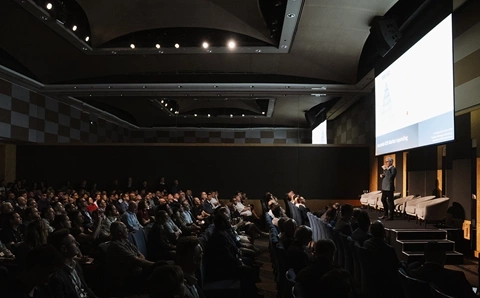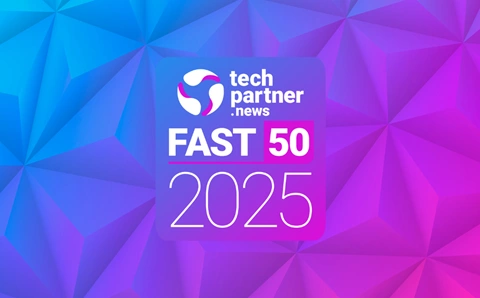While value-added resellers are scrambling to break into managed services, Glenn Kennedy is determining which of them he’s about to buy out. In April, Kennedy turned the collapse of channel veteran Dataflex into an opportunity, rolling the failed government specialist reseller into his expanding VTS IT Group, which he’d already bolstered in October last year through the acquisition of Toowoomba-based Downs MicroSystems.
Kennedy claims that most resellers – even those who offer managed services – "don’t really want to fix the customer’s problem".
"They just want to mask the problem. I believed there was a better way to run a business," says Kennedy, who founded VTS in 2008 after 17 years as chief operating officer of privately held IT solutions provider NetStrategy.
What was missing, until recently, was the software and infrastructure that enabled resellers to scale, he says. But the recent arrival of operations and infrastructure management tools have allowed him to offer the IT equivalent of a mobile phone plan to customers.
"I take your IT environment and this is what it will cost you and not a cent more and, if it does, it will cost me. People said we were crazy. I couldn’t have done it 10 years ago."
Kennedy founded VTS on Kaseya because he "can fix an environment before it breaks".
"I know the failure rates of hardware and issues with software upgrades, and I can build an environment from scratch. If you tried that with someone else’s build and run model, you’d fail."
In providing managed services, Kennedy confronts a common issue – making it pay. There’s little argument that customers are demanding that partners manage their infrastructure, but shared risk is often a sticking point.
"We just wouldn’t be able to do what we do at the cost we do it for without the core factors behind Kaseya; that ability to remotely control and monitor environments, that’s where a massive saving happens for us." Kennedy says each technician handles 750 desktops and this will increase to 1,000 desktops by Christmas. That is four times the industry standard in productivity and "goes exactly to the bottom line". This is what is powering Kennedy’s thirst to buy resellers – for their customer lists.
And he will need to boost productivity quickly to meet what he predicts is a rapidly rising demand for services. "Big data is going to be massive in our business," he says.
"Other resellers are saying you need a sales system to put into your ERP [like Salesforce] and pump out orders. But we’ll give you the hardware and develop the software at no cost and you pay a monthly fee. We would be scared to do that on a remote device if we didn’t have software monitoring the environments."
Gartner places Kaseya about centre of its Magic Quadrant for client management tools, in the visionary quadrant on par with Absolute Software and ahead of niche player FrontRange, but well behind leaders Landesk, IBM and Microsoft. The analyst notes that Kaseya is popular with MSPs and is a good choice for mid-sized client organisations looking for an all-in-one package but lacking security monitoring.
Kaseya Australia managing director Dermot McCann sees the boom as organisations embrace the internet of things, cloud and big data – especially with managed backup.
"We rebranded as an IT management cloud company to reflect the fact that the IT department is dealing with a very complex evolution," McCann says.
READ MORE:
"For an IT management cloud, it’s a much more complex problem to solve [than software as a service] because you have more transactions, alerts and management requirements. We have to manage it, command it centrally, manage remotely and we also have to automate it."
Kaseya recently bought 365 Command, a company that helps MSPs deliver Office 365 productivity software services, which is a big growth driver, McCann says.
"The channel is trying to embrace Office 365 and [learn] how they can monetise it. We’re developing the next generation of cloud management tools to give VTS better capability to manage Office 365, Salesforce and Dropbox; that can’t be done case-by-case."
Opening doors
While VTS was born into managed services, Accucom has transformed in the past few years.
"We provide end-to-end services from the riser to the desktop and mobile devices," says Tom Sidhom, sales and marketing director of Seven Hills, NSW-based Accucom. "We’ve traditionally done it on-premise or outsourced and now we do it using the cloud as well."
Accucom bases its services on Landesk, which Gartner recently praised for its shift from device licences to charging based on the number of users.
"I haven’t seen anyone else do that and, in a world where people have a couple of devices at a minimum, I’m surprised," Sidhom says. "I understand the reluctance [by vendors] because device-based licensing will earn you lots more money but [Landesk] is really leading the way."
Accucom also benefits from Landesk’s acquisition last year (from VMware) of Shavlik, a technology that eases patch management. Shavlik’s automated software licence tool saved one of its customers $140,000 in their first year with the MSP.
"It brought to the customer’s attention that they were heavily over-licenced in some areas and under-licenced in others," Sidhom says. "They were then able to charge back internally and use it for budgeting the following year."
Landesk has led to deeper conversations with customers, says Sidhom: "It has opened doors for us; it caters for all ITIL disciplines but doesn’t force you to comply with every piece." (ITIL – the IT Infrastructure Library – is a framework for delivering IT services.)
"The most important part for me is it’s information you can use to save and make money."
Sidhom sees customers ramping up their use of hybrid infrastructure – storing data on-premise and in the cloud – and a surge in BYOD and mobility (areas where Gartner says Landesk leads).
Sydney-based Landesk manager Andrew Souter says another key differentiator for users and their IT advisers is the platform doesn’t require complex security server settings to do its job.
"All you need is a net connection and the client will call back so there’s no restrictions of firewalls," Souter says.
Coming soon is a feature to help MSPs manage the welter of devices and processes under their control – a failing of the suite until now, Gartner says.
"It displays your database as giant bubbles – so the bigger the bubble, the more important the data," Souter says. For instance, Landesk uses it to see who, among its some 400 US employees on the Verizon cellular network, is blowing out their mobile phone plan.
Next: Avnet's cloyd support







_(11).jpg&h=142&w=230&c=1&s=1)


.jpg&w=100&c=1&s=0)
_(8).jpg&w=100&c=1&s=0)







.jpg&q=95&h=298&w=480&c=1&s=1)





